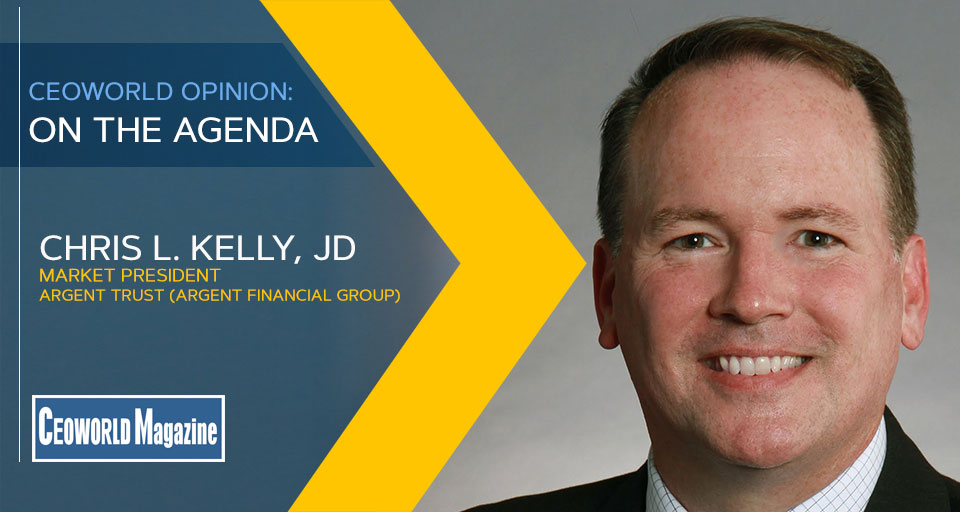Why Domestic Asset Protection Trusts Offer Advantages to Business Executives

For many high-net-worth individuals, protecting their estates from both taxes (during life and at death) and creditors is of paramount importance. People in higher-profile occupations, such as business executives, can easily become targets for litigation either in their personal or professional lives.
While trusts have always been effective instruments to protect against taxes and creditors, implementing a trust strategy usually results in the person losing control of their assets in the trust, as well as the ability to receive any financial benefits. However, 19 states now allow for a particular type of trust, known as a Domestic Asset Protection Trust (or DAPT), which offers these protections without the well-known drawbacks.
Each state has its own unique approach on what qualifies as a DAPT within its jurisdiction, so it’s important to note that the laws may vary significantly among the states. Here’s a closer look at how DAPTs work:
Qualifying as a DAPT
Some features or provisions related to DAPTs are similar from state to state. The person creating the trust — commonly known as the grantor — must follow specific steps to ensure it is established properly. A particular trust document must be drafted, and most states require that the trust contain certain key features to qualify as a DAPT. It must be irrevocable, and it must have specific language regarding the protection from creditors. Additionally, it must be managed by a qualified trustee and must specify which state’s law controls the operation of the trust.
Establishing irrevocability
To be irrevocable, the trust must contain some restrictive provisions concerning the grantor’s relationship with the trust. The key provision at the root of proving this component is that the grantor may not unilaterally terminate the trust once it is created.
Additionally, while a DAPT, by its legislative design, does allow for the grantor to receive income from the trust, it may be that he or she can only receive it under certain, limited conditions.
Creditor protection
To effectively protect against creditors’ access to the trust, the trust must also contain restrictive language known as “spendthrift” provisions. These terms make it clear that the grantor is not an owner of the assets in the trust, does not have unlimited access to the assets in the trust and is further unable to pledge his or her interest to a creditor.
Additionally, state laws generally treat creditors to whom the grantor owed an obligation before the trust’s creation differently than creditors who come along after the trust is created. Some states require that notice be sent to pre-trust creditors when the trust is created to inform them of a limited window for making claims before losing access to the trust assets. Those creditors who come along after the trust is established are generally barred from accessing the trust’s assets.
It is important to note that many states do allow certain creditors to have access to trust assets. Most of these creditors are related to the public policy of supporting familial obligations such as spousal support, alimony and child support. There are also safeguards in most states that will not block a creditor from accessing the assets in a DAPT if the transfer to the trust was made fraudulently.
Being a qualified trustee
To be a qualified trustee, the person must be a resident of the state. If the trustee is a corporation, the company must be a financial institution operating in the state. One of the more vulnerable areas for challenging a DAPT concerns the independence of the trustee. If there was any “off-the-record” understanding between the trustee and the grantor about the grantor’s ability to continue managing and accessing the assets in the trust, then the DAPT will easily fail if challenged. Additionally, if the grantor is able to exercise tremendous influence on the trustee and the way the trustee carries out its fiduciary duties, then the trust may fail as being a sham. Thus, it is important that the trustee relationship effectively withstand heightened scrutiny in a legal challenge.
Funding a DAPT
A DAPT may be funded with traditional investments such as cash, stocks, bonds and mutual funds. However, a grantor may also use more complex assets such as limited liability companies, business assets, intellectual property or real estate to fund a DAPT. Before funding the DAPT, it is important for the grantor, usually working with trusted advisors, to effectively evaluate all of the assets at the grantor’s disposal to determine which assets are best suited to go into the trust.
Tax considerations
The IRS generally allows assets in a DAPT to be excluded for federal estate tax purposes. If it becomes clearer from the White House and Congress that the estate tax exemption will be lowered, having a trust that will not be included in the grantor’s gross estate at death may be of high importance to effectively eliminate or reduce death taxes. However, for the trust to be excluded from federal estate tax inclusion, the language in the document and the relationship between the grantor and the trustee are generally well analyzed before making a final determination.
Additionally, a DAPT may provide state income tax savings if the trust is legally established in a state with no state income tax. Thus, a DAPT may be an effective shelter from state income taxes for residents in states that assess an income tax against its residents.
Ensuring a DAPT is right for you
For a multitude of reasons, a DAPT may be a very useful vehicle for a high-net-worth individual. As with most complex planning techniques, using a DAPT comes with its advantages and disadvantages. The appropriate process of establishing and administering the trust for the particular state in which the trust is located must be closely followed. Thus, it is important to engage the services of an attorney or accountant who works in the field to ensure a DAPT is suitable for your unique situation. He or she will be able to assess your unique circumstances and articulate your best options based on the assets you own, where you live and your financial goals.
Written by Chris Kelly, J.D.
Add CEOWORLD magazine to your Google News feed.
Follow CEOWORLD magazine headlines on: Google News, LinkedIn, Twitter, and Facebook.
Copyright 2024 The CEOWORLD magazine. All rights reserved. This material (and any extract from it) must not be copied, redistributed or placed on any website, without CEOWORLD magazine' prior written consent. For media queries, please contact: info@ceoworld.biz








